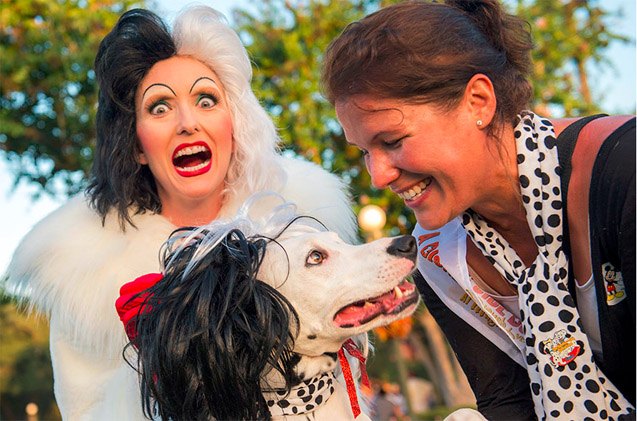Have you ever been out enjoying a peaceful walk or watching your pup play in the backyard, only to witness them suddenly nose-dive into the soil and… start eating it? That immediate feeling of disgust (who eats dirt, eww) is usually followed by a wave of concern. Ultimately, you’re left wondering why your dog would engage in such a seemingly unappetizing habit.You’re not alone! It’s a question that has likely crossed the minds of countless dedicated dog parents. Why? Because this “dirty” habit (see what I did there) is more common than you think!In this post, I will shed light on why dogs eat dirt, the potential risks associated with this habit, help you understand when it’s an unpleasant quirk versus a cause for concern, and most importantly, offer some tips and tricks to help keep your pup safe. Because when it comes to our dogs, peace of mind is priceless!Understanding Your Dog’s Motivation for Eating DirtWhen we see our dogs consuming dirt, it’s natural to immediately wonder why. This seemingly strange behavior, eating non-food items, actually has a scientific name: pica. While occasional dirt-licking might be harmless, chronic pica, where a dog regularly or obsessively eats dirt, can be a sign of underlying physical or behavioral issues that must be addressed. It’s not just about a dirty mouth; it could be a red flag that there’s something bigger at play.Nutritional DeficienciesFor a long time, the most common explanation for dogs eating dirt was a perceived nutritional deficiency. More specifically, many people believed it was a lack of essential minerals like iron. The idea was that dogs instinctively seek out what their bodies are missing. Therefore, if they are missing iron, they will look to eat something that will supply the missing mineral.While this can be a factor, it’s generally less common for dogs fed a high-quality, complete, and balanced commercial dog food. These foods are meticulously formulated to provide all the necessary vitamins, minerals, and nutrients a dog needs. So, while it’s a possibility, it’s often not the primary culprit.Behavior Roots of Dirt EatingMore often than not, the reasons behind eating dirt are behavioral. Just like humans, dogs can exhibit a range of behaviors that may seem “off” or out of character due to their emotional and mental states.Boredom and lack of stimulation: Dogs are highly intelligent creatures who need physical and mental enrichment. If your dog isn’t getting enough walks, playtime, or interactive toys, they may eat dirt to entertain themselves. It’s a novel texture, a different smell, and an activity to occupy their time.Anxiety and stress: Just like some people chew their nails when they are feeling nervous, some dogs develop coping mechanisms for stress and anxiety. Eating dirt can be a repetitive, self-soothing behavior for dogs experiencing separation anxiety, fear of loud noises, or other environmental stressors.Curiosity and exploration: This is especially true for young puppies. The world is a brand-new place, and puppies explore everything with their mouths. Dirt offers fascinating smells, textures, and tastes that they may be investigating out of pure curiosity, similar to how human toddlers put everything in their mouths.Attention-seeking behavior: Let’s be honest; seeing your dog eat dirt usually triggers a strong reaction from you. Perhaps you gasp loudly, quickly dash to stop them, or call out a firm “no!” If a dog learns that eating dirt gets them immediate attention, even if it’s negative attention, they might repeat the behavior just to get you to engage with them.Instinctual behavior: While highly domesticated, dogs still possess some primal instincts passed down from their wild ancestors. Wild dogs might ingest small amounts of dirt or soil to aid digestion, firm up loose stools, or perhaps even obtain trace minerals. However, this instinct is far less relevant for most modern house dogs and generally a thing of the past.Tummy TroublesSometimes eating dirt is a sign of underlying gastrointestinal problems. Just like dogs sometimes eat grass when they have an upset stomach or feel nauseous, they might also ingest dirt. They could be attempting to soothe an irritated digestive tract, induce vomiting to relieve discomfort, or simply looking for something to help them feel better. If your dog suddenly starts eating dirt and seems to be experiencing stomach issues, it’s a strong sign that their digestive system might be trying to tell you something.Tasty TemptationsOf course, there is always the possibility that something enticing is tempting them to dive in for a taste. Take a moment to consider the area from which your dog is snagging the dirt. Is there a reason they may believe the dirt could be delicious? For example, if you recently fertilized the garden, the scent of manure could be drawing your pup in.The Risks: When Dirt Eating Can Be DangerousWhile a casual lick of dirt might seem harmless, this habit could easily cross the line into much more concerning territory. Consistent or extensive dirt eating carries a long list of potential dangers for your pup.Gastrointestinal Blockages and ObstructionsOne of the most immediate and serious concerns when a dog eats dirt is the risk of a blockage or obstruction in their gastrointestinal tract. It’s not just the dirt itself; it’s often what’s mixed in with the dirt that leads to trouble. Small stones, pebbles, sticks, plastic pieces, or other debris can easily be ingested along with the soil. These non-digestible items can accumulate in the stomach or intestines, leading to a partial or complete blockage.This is a veterinary emergency that often requires surgical intervention. If not addressed, it can quickly turn life-threatening. Watch out for symptoms such as:Persistent vomitingLethargy and weaknessLoss of appetiteAbdominal pain or tendernessStraining to defecate or inability to pass waste























